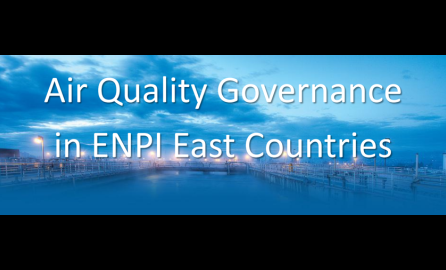Pilot Projects
The Air-Quality project has chosen an approach which comprised from setting priorities at country and regional level, creation of a regional network of air specialists and stimulating countries’ ownership through national pilot country driven activities. For that purpose specific priority areas have been identified by each of the seven participating countries and served as a basis for the design and implementation of seven national and three regional pilot projects. Pilot activities have focused on the following main subjects:
-Legal harmonisation/approximation focusing on newly adopted EU directives, especially Ambient Air Quality Directive 2008/50/EC and Industrial Emissions Directive 2010/75/EU.
-Introduction of advanced methodologies for the development of emission inventories.
-Ehancement of capacities for joining and facilitating compliance with the commitments under the UN Convention on Long-range Transboundary Air Pollution and its protocols and other international .
-Transfer of know-how in building integrated monitoring systems.
-Introduction of advanced modelling tools for the development of emission inventories and emission projections.
Moreover, implementation of pilot projects have ensured the largest involvement of civil society in the Air-Q-Gov project where in four of the seven countries well established NGOs were selected to implement such projects. They offered their considerable experience and supplementary channels for the distribution of project results and best practicies.
--
Проект Управление качеством воздуха выбрал подход, который, состоящий из определения приоритетов на страновом и региональном уровне, создание региональной сети специалистов воздушных и стимулирования причастность через национальных пилотных проектов. Для этой цели конкретные приоритетные области были выявлены в каждой из семи стран-участниц и служил в качестве основы для разработки и реализации семи национальных и трех региональных пилотных проектов. Пилотные деятельность была сосредоточена на следующих основных областях:
- Правовая гармонизация / приближение уделяя особое внимание вновь принятых директив ЕС, особенно качества атмосферного воздуха Директива 2008/50 / EC и промышленные выбросы Директива 2010/75 / ЕС.
- Внедрение передовых методик для развития кадастров выбросов.
- Улучшение потенциала для присоединения и содействия соблюдению обязательств в рамках Конвенции ООН по трансграничном загрязнении воздуха и ее протоколов и других международных
- Передача ноу-хау в строительстве комплексных систем мониторинга
- Внедрение передовых инструментов моделирования для разработки кадастров выбросов и прогнозов выбросов.
Кроме того, реализация пилотных проектов обеспечили большой вовлечение гражданского общества в проекте Управление качеством воздуха, где в четырех из семи стран также созданы НПО, отобранных для осуществления таких проектов. Они предложили свою значительный опыт и дополнительные каналы распространения результатов проекта и передового практики.
